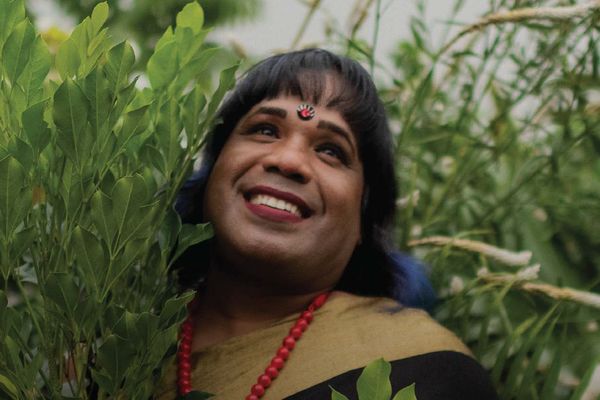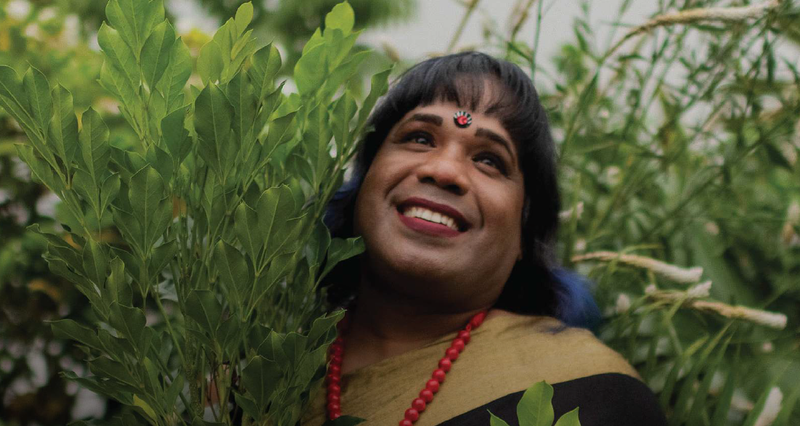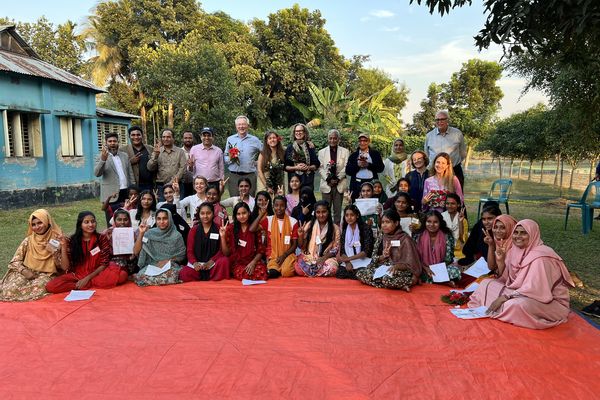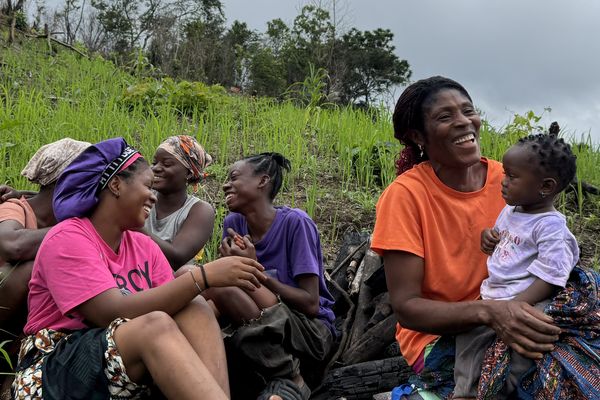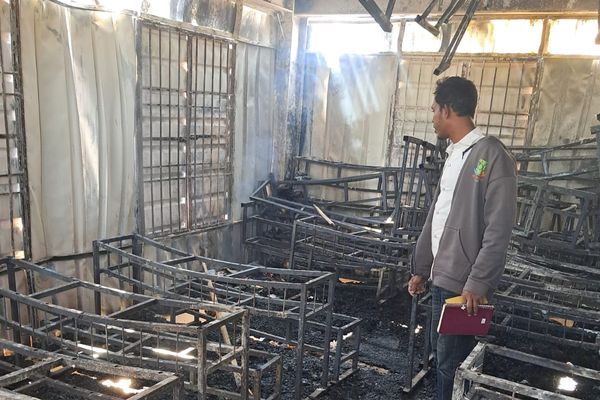Discover how Cynthia, an artisan, entrepreneur, and transgender woman, went from experiencing poverty and hardship to growing her fashion empire and uplifting other transgender people in her community.
BY MICHELLE VILLAR CERVANTES
Overcoming poverty is a tremendous challenge for anyone, but for people who also face oppression and marginalization for who they are or where they come from, escaping the poverty trap can seem impossible. Yet, with the right tools, opportunities, and hope, there is always a way.
Today, Cynthia is an entrepreneur and successful business owner in Bangladesh. Her business, Bhuiyan Fashion, employs over 200 people. Her journey, however, began with financial hardship that struck her family as a girl and facing challenges due to her identity as a transgender woman.
At a young age, Cynthia realized she was different. She was not interested in what boys tended to be interested in.
“When boys my age were busy playing cricket, I wanted to play with my sister’s dollhouse,” said Cynthia. “I was born a boy, I looked like one. But with each passing day, I began to feel more like a girl.” To her surprise and delight, Cynthia’s mother was accepting of her identity and supported her throughout her education.
However, it would not be an easy journey for Cynthia. At a young age, Cynthia’s mother prepared her for what she anticipated would be a long life of hardship for her daughter. Cynthia would come home from school every day and cry to her mother about the difficulties she endured. Her mother advised, “You must focus on your studies and become the best in your class so no one can belittle you.”
And that is what Cynthia did: Despite the name-calling, teases, and taunts, she studied hard and was at the top of her class.
Taking another path
When financial hardship struck her family, Cynthia was forced to drop out of secondary school. Her family moved out of their apartment into a small tin shed in Dhaka, the capital of Bangladesh. With her siblings were already out of the house and her father unable to find work, it was up to Cynthia to help support her family.
Cynthia first learned to raise cattle, was able to buy two cows. She partnered with two young men to start a new business, going door-to-door selling fresh milk. However, Cynthia endured relentless mocking when she approached new homes, forcing her partners to take on the primary responsibility of interacting with clients. After four years, Cynthia had begun to save money for her family and the business had 35 healthy cows.
However, when a disastrous flood struck the area, many of the cows fell to a deadly disease, and the few that survived produced limited milk. The business was forced to shut down.
With some money that her brother was able to send to her family, Cynthia’s father built a couple of small, basic buildings and rented one out to a tailor. Little did Cynthia know this would transform her life.
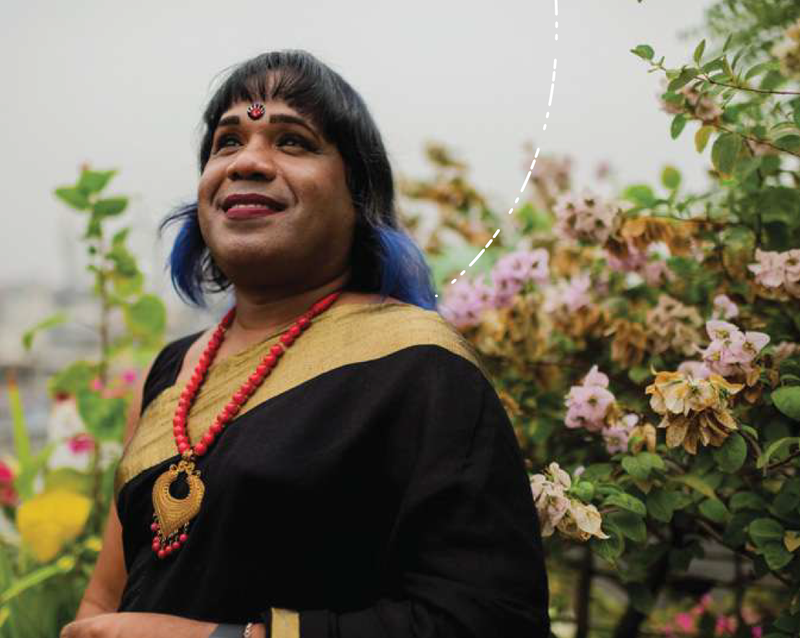
Forging a new opportunity
For weeks, Cynthia asked the tailor to teach her how to sew. He finally agreed, and began teaching Cynthia how to sew and tailor garments. The tailor worked for Aarong, BRAC’s flagship social enterprise and retail outlet that creates a platform for local artisans to sell their products at a fair price, and referred Cynthia to its headquarters.
“The next morning, my bus stopped at the Aarong gates, and a guard politely asked, ‘Apa (sister), where do you want to go?’ It was perhaps at that moment when I realized I was entering somewhere different,” Cynthia shared. “No one had ever acknowledged me as Apa before or spoken to me with so much respect.” Among the people at Aarong, she began to introduce herself as Cynthia, a special name she had picked out for herself after her favorite flower.
After speaking with Aarong’s production department, Cynthia was given two designs and asked to turn in samples of her work. Although she encountered teasing, mocking, and even physical abuse from a handful of store owners who refused to sell her materials, one store owner allowed Cynthia to purchase the materials she needed to create the designs. Upon her return to Aarong, Cynthia’s samples passed the quality check and she became a producer for Aarong. She made $350 on her first order.
Despite overcoming many obstacles to be taken seriously and create an opportunity to start a new career, Cynthia did not give up. As her business began to grow, she initially struggled to find people who were willing to work with her, but she built her business carefully and steadily. As her business grew, she never compromised the quality of her work and always ensured she paid her workers fairly, earning her business a good reputation.
Today, Cynthia’s fashion empire employs over 200 people, and she focuses on rehabilitating, training, and employing transgender people like herself.
Although Cynthia’s story is one of overcoming poverty and hardship, it is also one of triumphing as a trans woman in Bangladeshi society. Her journey is a testament to what anyone, no matter their circumstances, can do when they are equipped with the opportunities and hope they need to change their lives.
“My story had a rough start,” Cynthia told us, “but I’m grateful for everything life has taught me. I tell myself every day – this is only the beginning. I’m only starting to fly.”
Michelle Villar Cervantes is a Communications Intern at BRAC USA.
